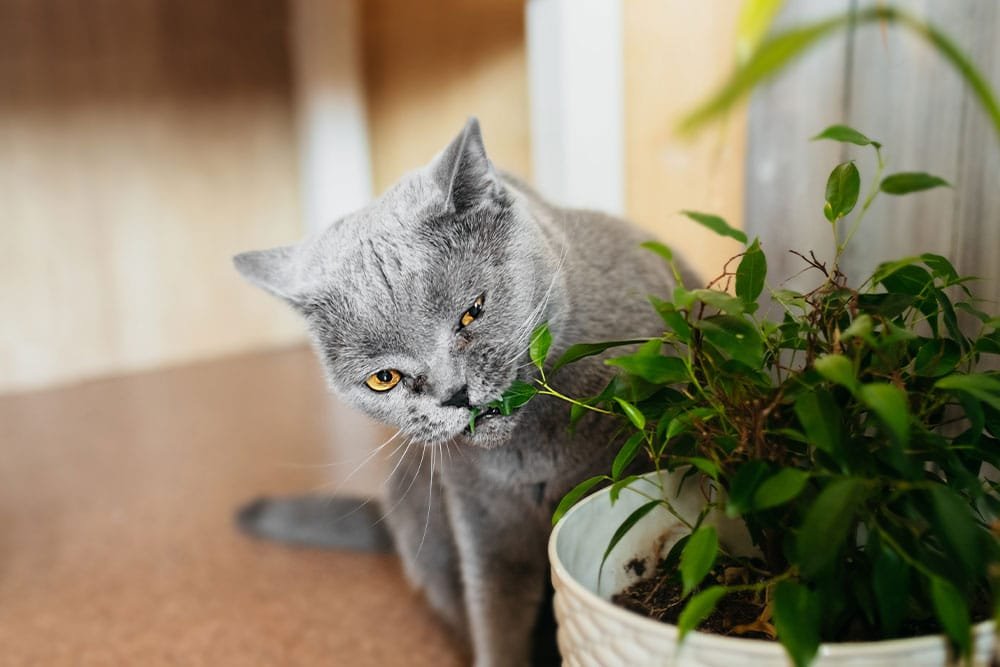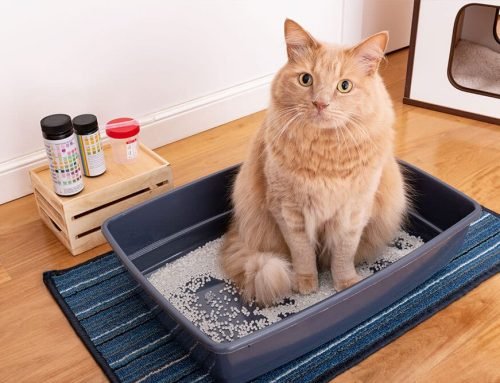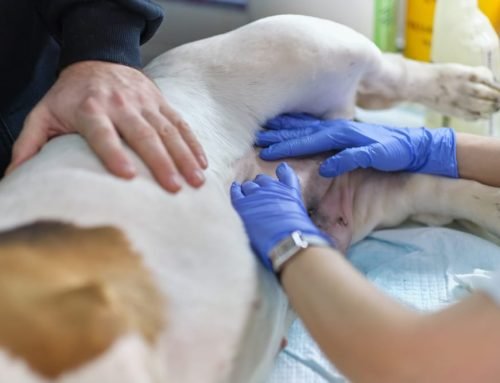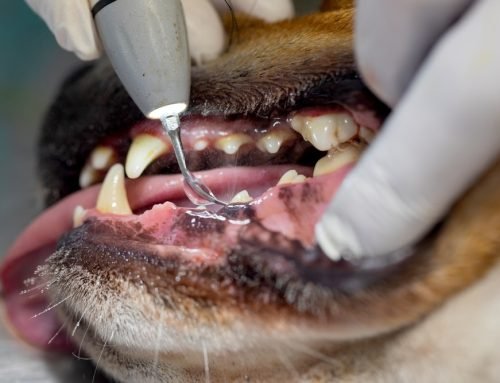Pet Poison Control: Foods and Substances to Keep Away from Your Dog or Cat
Even the most loving, vigilant pet owners can overlook hazards hiding in plain sight. From pantry staples to potted plants, many everyday items can be toxic—or even deadly—for dogs and cats.
At St. Petersburg Animal Hospital & Urgent Care, we treat a wide range of poisoning cases every year. In many situations, prompt care makes all the difference. But the best outcomes come from prevention and early recognition.
This guide outlines the most common pet toxins, how to pet-proof your home, and what to do if you suspect your pet has been exposed.
When Is Ingestion an Emergency?
According to the American Animal Hospital Association (AAHA), ingestion of a known or suspected toxin is always a veterinary emergency—even if your pet seems fine at first.
If you think your pet has consumed something harmful:
- Don’t wait for symptoms
- Don’t induce vomiting unless instructed
- Call your veterinarian immediately or contact the ASPCA Animal Poison Control Center at 888-426-4435 (a consultation fee may apply)
Our urgent care team is available for immediate assessment and treatment.
Substances That Are Toxic to Pets
1. Human Medications
Many human medications are extremely toxic to pets, even in tiny amounts:
- Ibuprofen (Advil), acetaminophen (Tylenol)
- Antidepressants or anti-anxiety drugs
- Cold and flu medications
- Heart and blood pressure meds
- ADHD medications
New pet medications increasingly resemble human pills, making mix-ups more common.
CNBC discusses this trend
2. Toxic Foods
Never allow pets to consume:
- Chocolate AAHA explains chocolate toxicity
- Grapes or raisins
- Onions, garlic, or chives
- Xylitol (a sweetener in sugar-free gum, baked goods, and some peanut butters)
- Caffeine or alcohol
- Raw yeast dough
- Macadamia nuts
Symptoms can be delayed—if ingestion is suspected, act quickly.
3. Toxic Plants
Many houseplants and flowers are hazardous, especially to cats.
Highly toxic varieties include:
- Lilies (extremely toxic to cats)
- Sago palm
- Oleander
- Tulips and daffodils
- Dieffenbachia
- Pothos
Consult the ASPCA’s toxic plant list before adding plants to your home or garden.
4. Rodenticides and Insecticides
Rodent bait, slug poison, and even some lawn products contain anticoagulants or neurotoxins that can cause:
- Internal bleeding
- Seizures
- Organ failure
ASPCA explains the dangers of rodenticides
5. Marijuana and Recreational Drugs
Marijuana exposure is rising in pets—especially from edibles. Other drugs, including opioids, hallucinogens, and stimulants, can also be fatal.
Signs of cannabis toxicity include:
- Lethargy or staggering
- Low heart rate
- Incontinence
- Drooling or vomiting
- Disorientation or tremors
Learn more from ASPCA and Merck Veterinary Manual
How to Pet-Proof Your Home
Creating a safer home environment starts with awareness. Consider these essential tips:
- Store all medications in secured cabinets
- Keep food off counters and tightly seal trash cans
- Use pet-safe alternatives for pest control
- Check new plants against ASPCA’s toxic plant database
- Lock up cleaning products, antifreeze, and glue
- Avoid risky toys or chews that can splinter or be swallowed AAHA’s “Don’t Chew On This!” guide
Want to do a full home check? Follow AAHA’s room-by-room pet-proofing tips.
Signs of Poisoning in Dogs or Cats
Symptoms can vary widely depending on the toxin, but common red flags include:
- Vomiting or diarrhea
- Excessive drooling
- Seizures or tremors
- Lethargy or collapse
- Irregular heartbeat or breathing
- Pale gums
- Loss of balance or coordination
- Sudden behavioral changes
Some toxins act quickly, while others may take hours to show effects. If you’re unsure, always err on the side of caution.

What Happens During Emergency Treatment?
If your pet ingests a toxin, the treatment plan will depend on what, how much, and how recently they consumed it.
At St. Petersburg Animal Hospital & Urgent Care, our emergency care may include:
- Inducing vomiting (when appropriate and safe)
- Administering activated charcoal to limit absorption
- IV fluids to support the kidneys and flush toxins
- Medications to reduce seizures, nausea, or inflammation
- Bloodwork through our in-house lab for rapid diagnostics
- Hospitalization and 24-hour monitoring for serious cases
Fast action improves outcomes—never wait and see.
Be Prepared: Poison Safety Checklist
- Save the ASPCA Poison Control Center number: 888-426-4435
- Post your veterinarian’s contact information in visible spots
- Store household items safely and securely
- Educate family members and houseguests about pet-safe practices
- Know the signs of poisoning and act fast if you see them
Suspect a Poisoning? Call Us Now
If your pet has ingested something questionable, every minute counts. Don’t wait for symptoms to appear—reach out immediately.
Our urgent care team at St. Petersburg Animal Hospital & Urgent Care is ready to respond with fast, compassionate care.
Schedule a visit or call us directly with your concerns. We’re here to answer your questions, offer guidance, and provide the care your pet needs to stay safe.







Leave A Comment